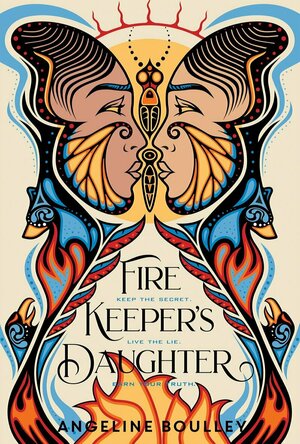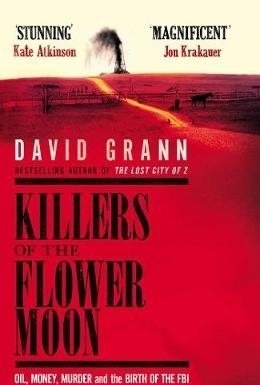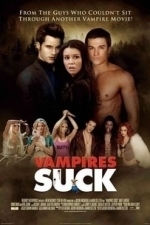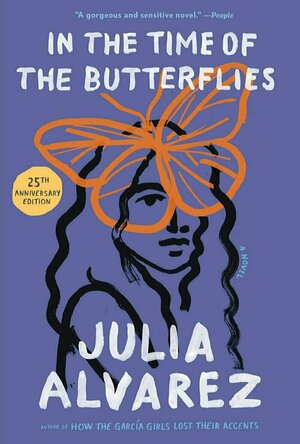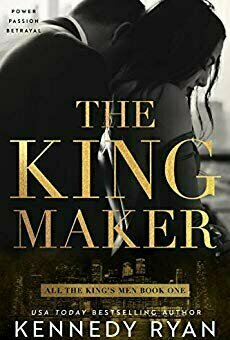
The Last Express
Games
App
Step aboard the 1914 Orient Express in this award-winning mystery adventure from Prince of Persia...

Cook Tasty : Recipes & Videos
Food & Drink and Health & Fitness
App
Having delicious and healthy dishes is always a need for us. Cooking self is always a special one....
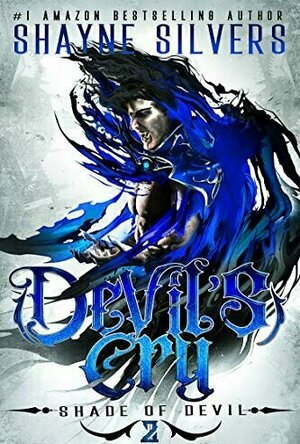
Devil's Cry : Shade of Devil Book 2
Book
The greatest trick the First Vampire ever pulled was convincing the world that he didn’t exist. ...
Kristy H (1252 KP) rated Firekeeper's Daughter in Books
Aug 19, 2021
"I learned there were times when I was expected to be a Fontaine and other times when it was safe to be a Firekeeper."
This is an excellent book--more mystery than I thought it would be. It covers a lot of topics--sometimes more than seems necessary. Racism, tribal issues, sexual assault, depression, drug abuse, FBI informants, romance, murder... there's a lot packed into this book. However, it does a great job looking into how meth and drug abuse affect the Native American community (as well as sexual assault). It's heartbreaking at times, but also compelling and educational.
"My mother's superpower is turning my ordinary worries into monsters so huge and pervasive that her distress and heartache become almost debilitating. I can protect her from that hurt."
Daunis is a very sympathetic and likeable character. She's dedicated to her family, to her tribe, and her community. She takes on a lot for a kid her age. Sometimes it felt like the informant plot was a little much, a little contrived, but overall, it didn't take away from my enjoyment of the book. It was wonderful to read an #OwnVoices book of such quality and scope, and I look forward to what Boulley does next.
I read this book as part of my new reading project--choosing books off my shelves based on their Goodreads rankings. This is my fourth book of the project, forcing me out of my comfort zone and to try books in genres I don't usually read!

Learn & Retain Spanish with Spaced Repetition
Book
Transform your Spanish skills and build your confidence with this complete handbook and over 5,000...
spanish
Suswatibasu (1703 KP) rated Killers of the Flower Moon: The Osage Murder and the Birth of the FBI in Books
Nov 24, 2017 (Updated Nov 24, 2017)
This fantastic book relates to a story covered in blood, racism and greed. Oil, black gold, made the Plains Osage tribe incredibly wealthy. By the 1890's, the remnants of this great people were in the scrub lands of Northern Oklahoma.
Their life was continually harsh, the soil poor. In the late 1890's, by chance, oil was struck in Osage County, flowing in abundance and in great demand. From 1918 to 1928, $202 million was paid to the tribe which by then numbered around 3000, transforming their lives. 680 barrels were obtained in a day in 1920 from a strike at Burbank, angering the whites and thus began the "Reign of Terror" in which hundreds of the Osage tribe members were subsequently killed in the most horrendous display of corruption.
The book itself begins in 1921 with an Osage woman who had a share of the mineral riches to be found under the Osage land. Mollie like others was subject to a law that treated her tribe as juveniles whose estates had to be administered by white guardians, that is local lawyers and businessmen, appointed by local courts.
Guardianship was unpoliced and few records were kept. Fraud was therefore prevalent and many of the local white community participated in corruption - murder was widespread as a result. Mollie's sister, Anna, was the first noticeable murder in which she was shot and killed, launching a major probe into similar killings in the area. Many other murders were committed over the following years, with poisoning as the most common method of killing. Essentially it was a covert form of genocide.
The locals refused to act, partly due to fear or involvement in this heinous plot, so J. Edgar Hoover, who was the first president of the FBI, became involved in the investigation. He sent a tall Texas Ranger called Tom White to scrutinise an epic series of murders in which even investigators were targets.
What follows is not only history but a riveting detective story and the book demonstrates yet again the enormous cost of American nationhood. It provides some fascinating insight into the early workings of the FBI (not least Hoover's nascent megalomania) for whom this was a celebrated case and a valuable reminder for folk who thought the persecution of American Indians ended in the late 19th century. Author and journalist David Grann does a superb job in collating all of the information with dozens of pages solely highlighting attributions and references - it is thorough and well-researched. Therefore it is hardly surprising that Hollywood has snapped up this book to turn it into a major motion picture - let's hope they don't whitewash history once again.
Gareth von Kallenbach (980 KP) rated Vampires Suck (2010) in Movies
Aug 8, 2019
Becca (newcomer Jenn Proske) is forced to move to Sporks, Washington, with her deadbeat father and town sheriff, Frank Crane (Diedrich Bader of The Drew Carey Show). Frank’s best friend is the rough-and-tumble paraplegic Native American, Bobby. His contribution to the plot is his hunky teenage son, Jacob White (Chris Riggi of Gossip Girl). The town of Sporks seems to have vampires on the brain and its population is only growing smaller.
Our heroine is introduced to Edward Sullen (Matt Lanter of Disaster Movie) and what follows is the “classic” story of girl-meets-vampire, girl-loses-vampire, girl-gets-threatened-by-vampire-nemesis, etc. Writers/Directors Jason Friedberg and Aaron Seltzer use their formulaic approach to spoof movies by making the plot a cliff-notes version of the Stephanie Meyer’s original material, with ample jokes thrown in-in an attempt to beef up their rendition.
In fact, there are so many visual jokes in the movie that it left me wondering what a sight-impaired person might conclude of the movie. “What are all these people laughing at?” I noticed a few of the dialogue driven jokes weren’t even played off by the actors. They seemed to have been missed by everyone, including the editors. Other jokes are pop-culture references that will get stale with time. They’re integrated well, but definitely dated. The movie is redolent with the classic American comedy tradition of slapstick, which occasionally comes off as funny.
The production value left something to be desired as several scenes were obviously one-takes. I counted several instances where Becca’s kiss left Edward’s mouth with a smudge of his own flesh-tone showing through. But hey- at least single takes have continuity, right? The contacts, no doubt purchased in bulk, gave the characters an occasional Marty Feldman goggly-look. The effect is hilarious, although I’m not always sure if it’s intentional.
The cast has its standouts. Jenn Proske’s Becca comes dangerously close (like copyright-violating close) to the performance of Kristen Stewart’s Bella as the fidgety, twitchy, sullen and hormone-y heroine. And Ken Jeong (The Hangover) as Daro, while not appearing on screen much, definitely makes his comedic presence felt.
All in all, “Vampires Suck” didn’t really suck… it kind of chews, like gum. Gum out of the package is fresh, flavorful, but the longer you chew it, the tougher and more stale it becomes. This movie is fresh, funny, and quirky right now, but it won’t stand the test of time like more accomplished parodies.
Veronica Pena (690 KP) rated In the Time of the Butterflies in Books
Jan 25, 2020
This book gave me a connection. A connection to the history, to the language, to the land - one I didn't have before. As I moved through the novel and became familiar with Dedé, Minerva, Patria, and María Teresa, I found bits of myself in each of them. I found myself talking to them as if I knew them or they were my friends, wanting to provide them comfort, advice, a swift kick in the butt when I thought they needed more of a push. I wish I could truly put into words all the things this novel did for me and made me feel. I'm not sure if I'll ever be able to find them.
What I loved most about this story is the truth in it all. Trujillo was a dictator and under his regime, the DR fell apart. I loved that the Mirabal sisters were real and that while their story was one worth telling, the one in this book was fictionalized but still rang true in some aspects. I loved that their story was told from all four of their perspectives, not just Dedé, as the survivor.
I think this novel is one that should be read by many, and I think this story - one of the Mirabal sisters - is one that should be shouted from as many rooftops as possible.
"The function of freedom is to free someone else." - Toni Morrison
Leanne Crabtree (480 KP) rated The Kingmaker (All the King's Men Duet, #1) in Books
Jan 29, 2020
Maxim Cade is the son of the millionaire/billionaire laying the pipeline but is against the use of fossil fuels and his fathers companies use of violence against those protesting the pipelines build. He puts himself between a dog's jaw and Lennix and as they are carted off to jail they bond with each other and a connection is formed that lasts years, though they don't see each other again for another four.
This book spans a lot of years. 14 from that meeting when Lennix is 17. They are now both successful in their own right. Maxim with his green energy business and Lennix with her, erm...I don't know the title for what she does. She helps political figures get into office, fighting for those who are helping the minorities.
I get that both are going after important issues that are happening in America, and the world, but I did feel like at times it was a bit repetitive and very in-depth with the information we're told - which I'll admit, I found a bit boring. Also, politics is not for me and it began to take up a fair part of this book towards the end.
Some of the secondary characters were cool. The guy - can't remember his name, some sort of surname - who was with Maxim on the Antarctic boat? I liked him. He talked sense a lot and ended up really close with Maxim. I also liked Wallace. That bit at the party around the 70% mark when he's being - in Lennix's words - her beard, trying to keep Maxim at arms length after not seeing each other for ten years, was fun.
The connection between Lennix and Maxim was great when they were together but in the end it wasn't that much of the book. They seemed to be apart more than they were together.
I don't think I'll be reading its counterpart.

Nursing Dictionary - Medical and Drug Definitions
Medical and Reference
App
Nursing Dictionary by Farlex is a medical dictionary app specifically for nurses. Get free, instant...
